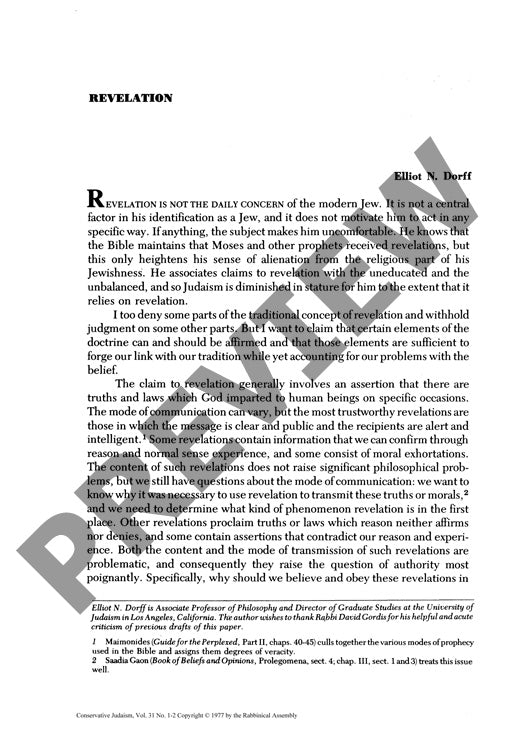Revelation
Couldn't load pickup availability
Divine revelation stands at the heart of Jewish faith, yet modern epistemology poses significant challenges to traditional understandings of how God communicates with humanity. Through philosophical analysis of medieval and rabbinic sources, this research uncovers how Rabbinic literature strategically transformed biblical concepts of revelation - restricting prophetic authority to First Temple figures while establishing midrashic interpretation as the primary channel for divine wisdom. The Rabbinic approach proves remarkably prescient in addressing modern theological concerns by emphasizing communal validation over individual prophetic claims. Building on these insights, an eight-point theoretical framework emerges that reconceptualizes revelation as divine communication mediated through human faculties, world structure, and communal tradition. While specific theological content remains subject to human interpretation and error, the Jewish textual tradition demonstrates superhuman wisdom through its historical adaptability and continued viability. The authority of revelation ultimately derives from both communal acceptance and the intrinsic wisdom of Jewish law and ideology, validated through intersubjective community testing. This framework charts a middle path between fundamentalist literalism and wholesale rejection of revelation, preserving essential traditional elements while meeting modern epistemological standards. The analysis provides Conservative Jewish theology with philosophical foundations for maintaining traditional observance while embracing historical-critical scholarship and rational inquiry.

More Information
-
Physical Description
-
Publication Information
Published 1976
ISBN
-
Publication Credits
Elliot Dorff

